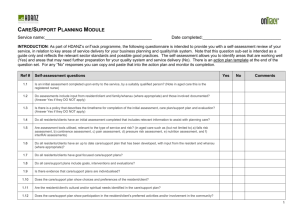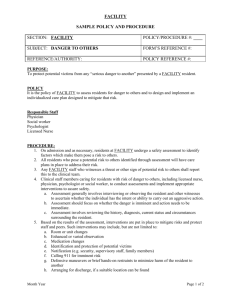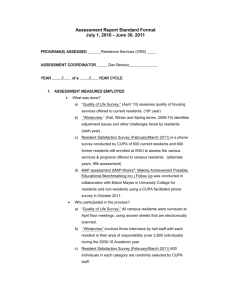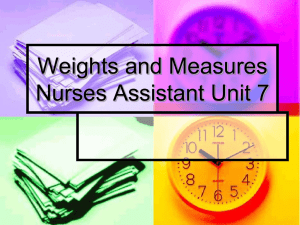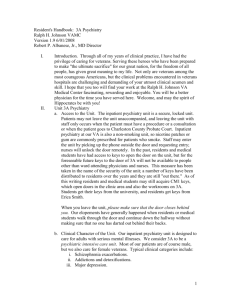PCHoverview
advertisement
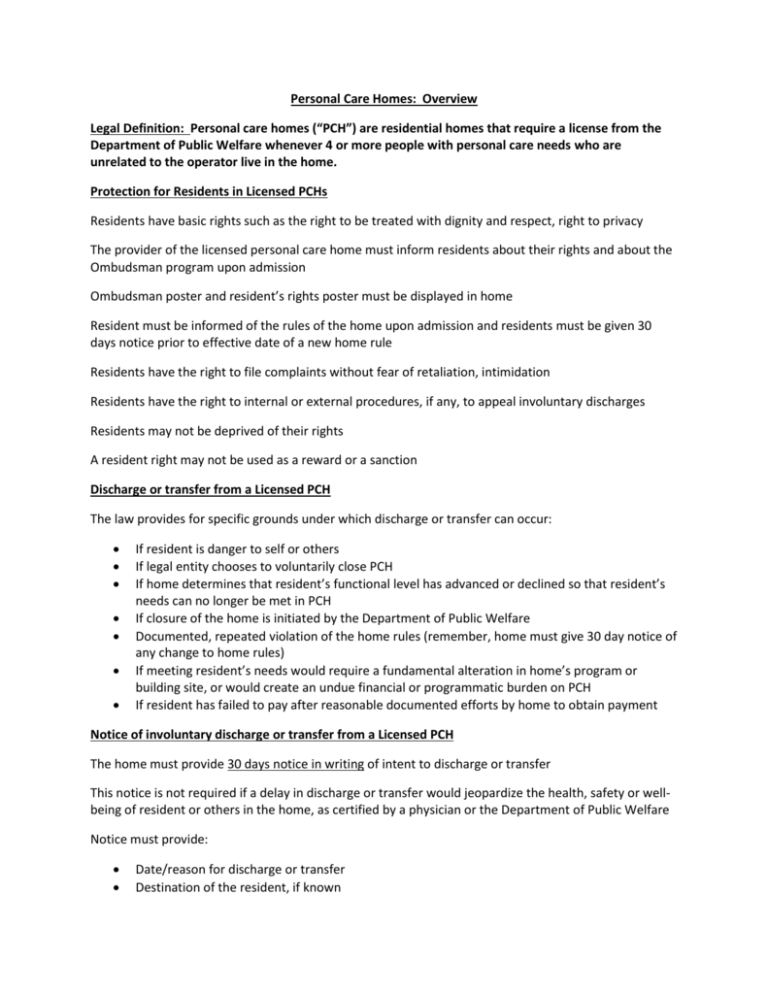
Personal Care Homes: Overview Legal Definition: Personal care homes (“PCH”) are residential homes that require a license from the Department of Public Welfare whenever 4 or more people with personal care needs who are unrelated to the operator live in the home. Protection for Residents in Licensed PCHs Residents have basic rights such as the right to be treated with dignity and respect, right to privacy The provider of the licensed personal care home must inform residents about their rights and about the Ombudsman program upon admission Ombudsman poster and resident’s rights poster must be displayed in home Resident must be informed of the rules of the home upon admission and residents must be given 30 days notice prior to effective date of a new home rule Residents have the right to file complaints without fear of retaliation, intimidation Residents have the right to internal or external procedures, if any, to appeal involuntary discharges Residents may not be deprived of their rights A resident right may not be used as a reward or a sanction Discharge or transfer from a Licensed PCH The law provides for specific grounds under which discharge or transfer can occur: If resident is danger to self or others If legal entity chooses to voluntarily close PCH If home determines that resident’s functional level has advanced or declined so that resident’s needs can no longer be met in PCH If closure of the home is initiated by the Department of Public Welfare Documented, repeated violation of the home rules (remember, home must give 30 day notice of any change to home rules) If meeting resident’s needs would require a fundamental alteration in home’s program or building site, or would create an undue financial or programmatic burden on PCH If resident has failed to pay after reasonable documented efforts by home to obtain payment Notice of involuntary discharge or transfer from a Licensed PCH The home must provide 30 days notice in writing of intent to discharge or transfer This notice is not required if a delay in discharge or transfer would jeopardize the health, safety or wellbeing of resident or others in the home, as certified by a physician or the Department of Public Welfare Notice must provide: Date/reason for discharge or transfer Destination of the resident, if known Under the regulations, there is no specific appeal right to an involuntary discharge—there is no right to an appeal and hearing before the Department of Public Welfare Action steps for advocates whose clients are facing involuntary discharge Advocacy is key—talking with the home operator about the issues to find a solution or compromise Filing complaint with Adult Residential Licensing if discharge seems to violate regulations or is otherwise problematic Refer client to long term care ombudsman if appropriate Advice client that there is no resident right to stay in home pending a review or complaint—regulations are silent on this Unlicensed Personal Care Homes—How to report Contact Adult Residential Licensing, Regional Office for your area http://www.dpw.state.pa.us/findfacilsandlocs/personalcarehomefieldoffices/index.htm Contact the long term care ombudsman North, South, West and Southwest Philadelphia: Contact CARIE, Center for Advocacy for the Rights and Interests of the Elderly @ 215-545-5724 Northeast and Northwest Philadelphia: Contact the ombudsman program @ 215-399-4970 Contact the police Updated 2/22/13




